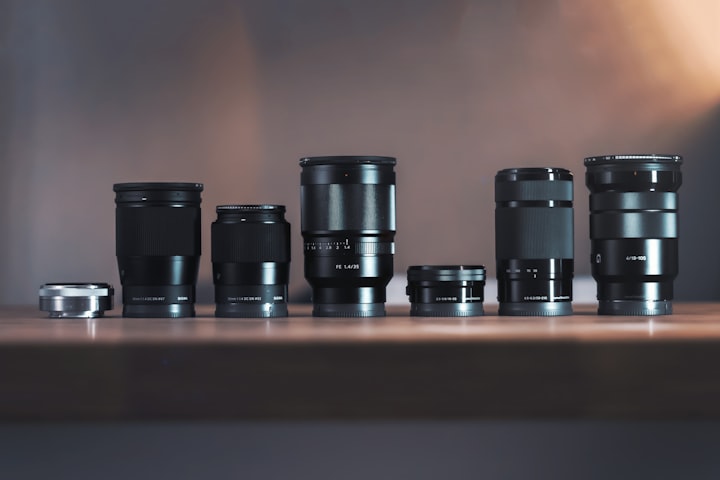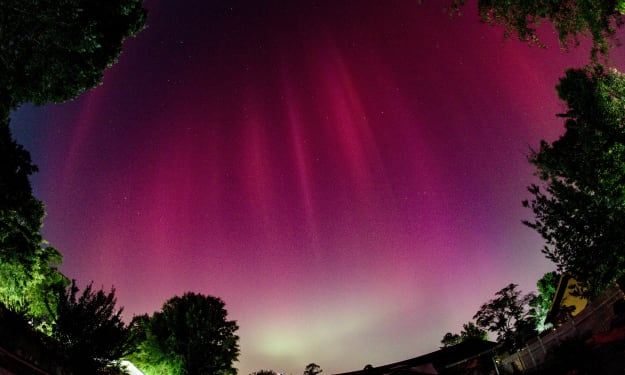
An image sensor or imager is a sensor that detects and conveys information used to form an image. It does so by converting the variable attenuation of light waves into signals, small bursts of current that convey the information. The waves can be light or other electromagnetic radiation. There are two major types of image sensors: CCD, or charge coupled device and CMOS, or complementary metal oxide semiconductor.
An image sensor or imager is a sensor that detects and conveys information used to form an image. It does so by converting the variable attenuation of light waves (as they pass through or reflect off objects) into signals, small bursts of current that convey the information. The waves can be light or other electromagnetic radiation. Image sensors are used in electronic imaging devices of both analog and digital types, which include digital cameras, camera modules, camera phones, optical mouse devices. Medical imaging equipment, night vision equipment such as thermal imaging devices, radar, sonar, and others. As technology changes, electronic and digital imaging tends to replace chemical and analog imaging.
The two main types of electronic image sensors are the charge-coupled device (CCD) and the active-pixel sensor (CMOS sensor). Both CCD and CMOS sensors are based on metal–oxide–semiconductor (MOS) technology, with CCDs based on MOS capacitors and CMOS sensors based on MOSFET (MOS field-effect transistor) amplifiers. Analog sensors for invisible radiation tend to involve vacuum tubes of various kinds, while digital sensors include flat-panel detectors.
Understanding The Digital Image Sensor
Sensors can be classified in several ways such as its structure type (CCD or CMOS), chroma type (color or monochromatic), or shutter type (global or rolling shutter). They can also be classified by resolution, frame rate, pixel size, and sensor format. Understanding these terms can help one better understand which sensor is best for their application.
However they are classified, the purpose of image sensors are the same; to convert incoming light (photons) into an electrical signal that can be viewed, analyzed, or stored. Image sensors are a solid-state device and serve as one of the most important components inside a machine vision camera. Every year new varieties of sensors are manufactured with improvements to sensor size, resolution, speed, and light sensitivity. In this article we discuss some of the basics of image sensor technology found inside machine vision cameras and how those relate to their classifications.
What does image sensor do?
However they are classified, the purpose of image sensors are the same; to convert incoming light (photons) into an electrical signal that can be viewed, analyzed, or stored. Image sensors are a solid-state device and serve as one of the most important components inside a machine vision camera.
How does sensor affect image quality?
Camera sensors contain millions of “photosites” that capture light that is translated into pixels. A million of these pixels equals one megapixel. The larger your camera's sensor, the larger the photosites, the more resultant megapixels, which allow for a better image and a higher resolution.
What is image sensor in CCTV camera?
An image sensor is the “eye” of your IP security cameras. A security camera image sensor can capture the light hitting the security camera lens, and convert it into electronic signal. Thus you can see the images/videos when you access your IP security cameras.
What is the basic principle of image sensor?
An imaging sensor converts photons into electrons. The conversion ratio, the quantum efficiency (QE), depends on the wavelength. The more photons are converted into electrons, the more sensitive to light the sensor is and the more information can be obtained from the image
About the Creator
Olaoluwa
Ola was born 24th May 2011
He is a Story teller, Reasearcher, Poem Writer and lot more






Comments
There are no comments for this story
Be the first to respond and start the conversation.